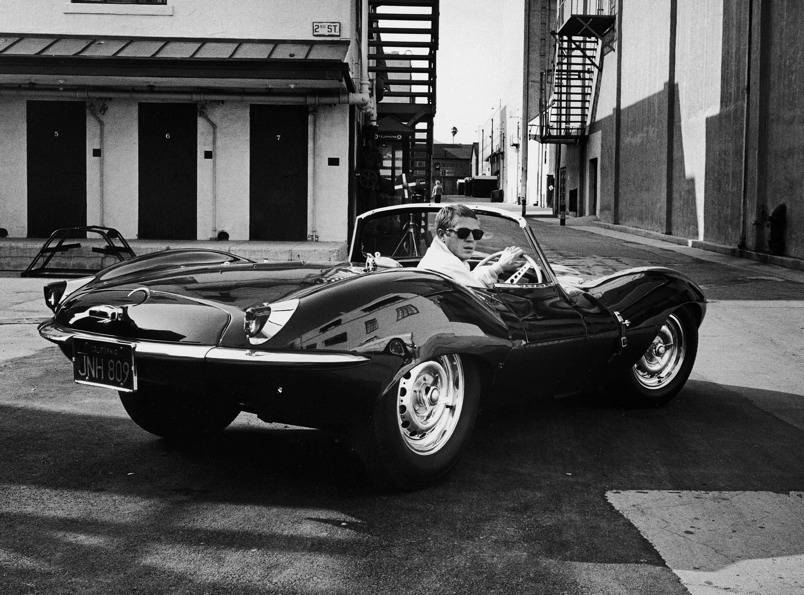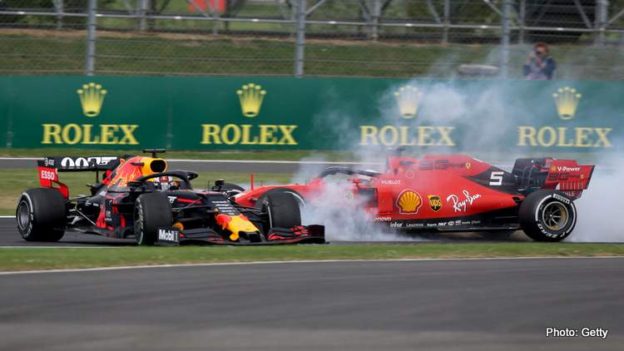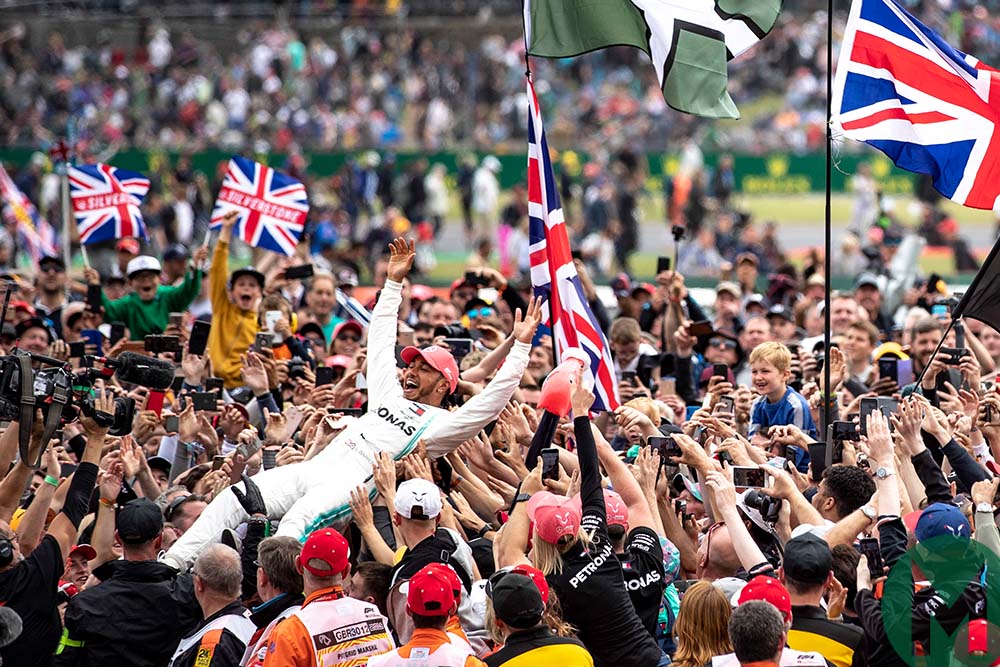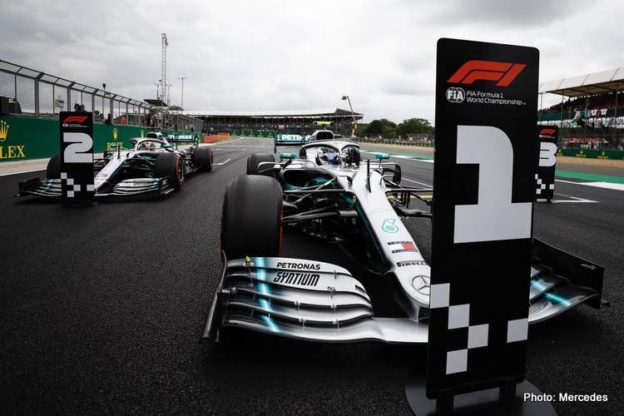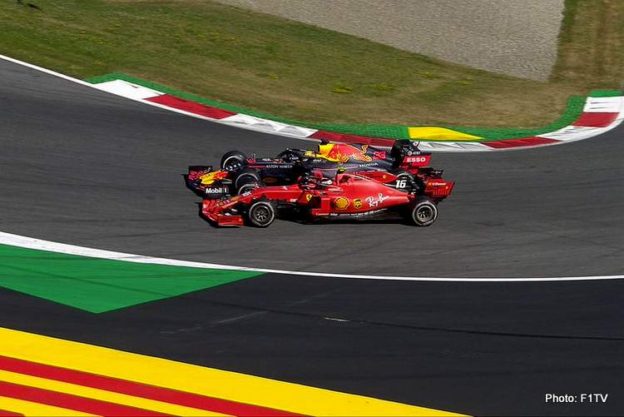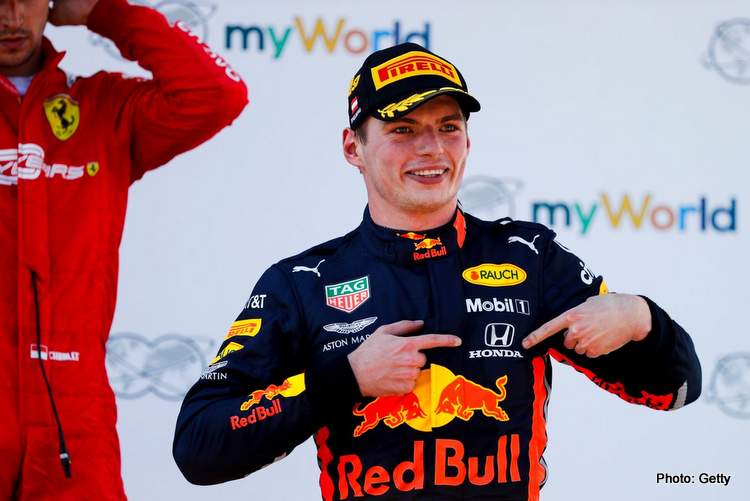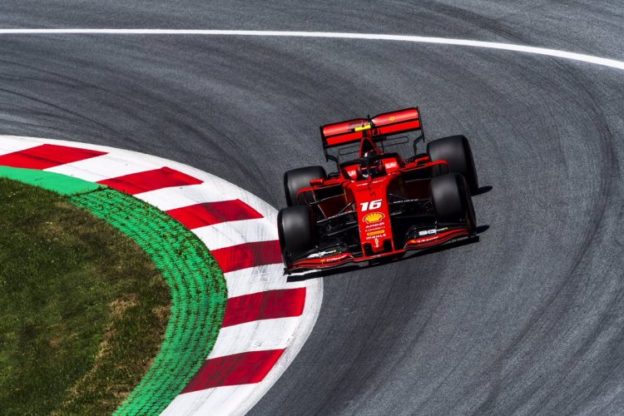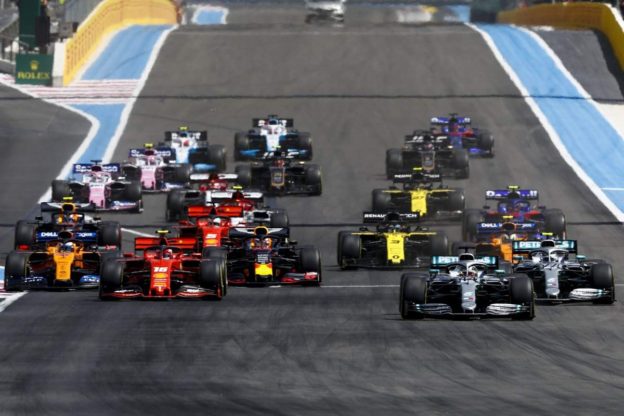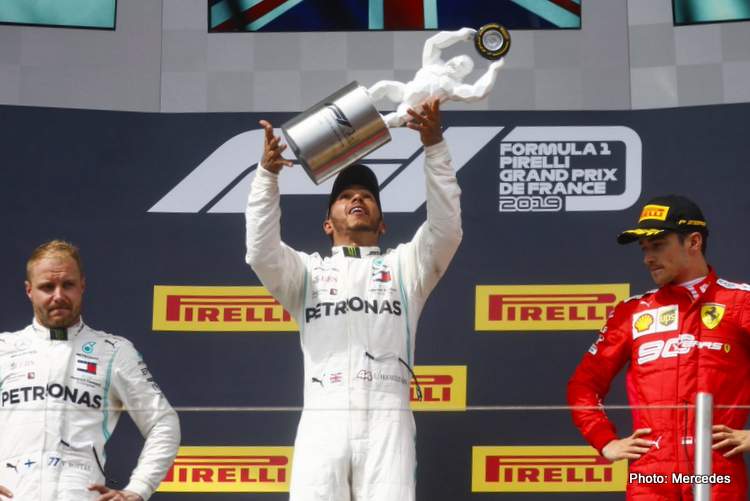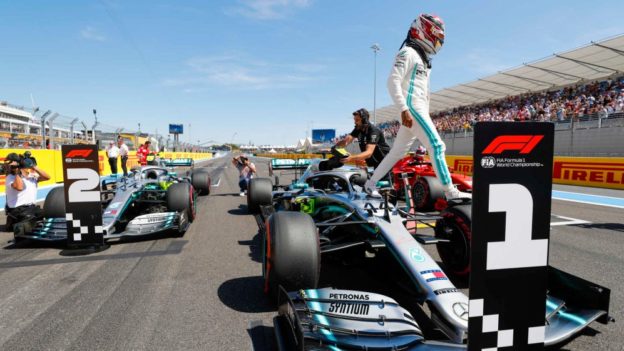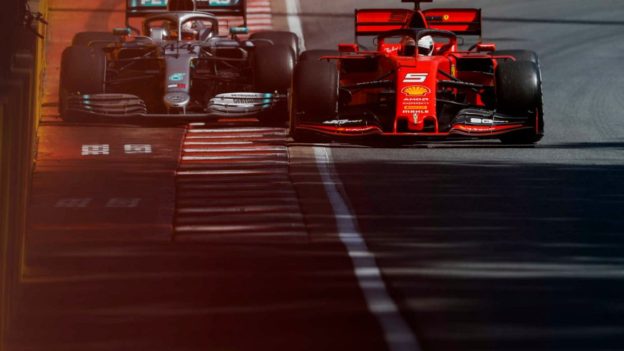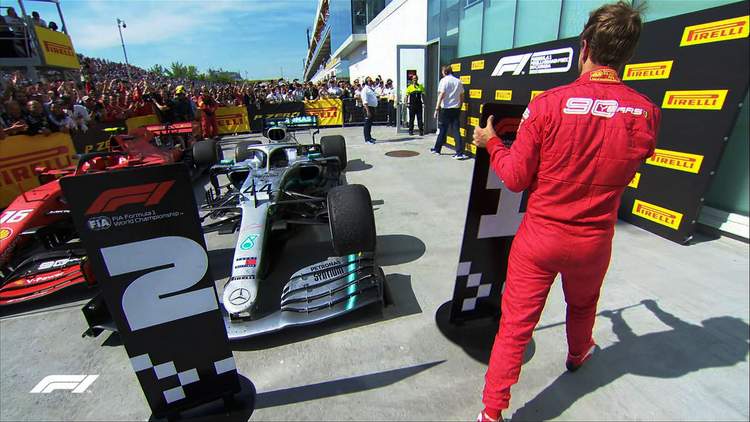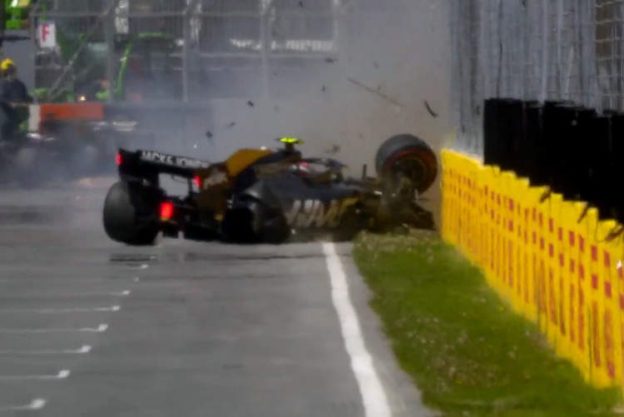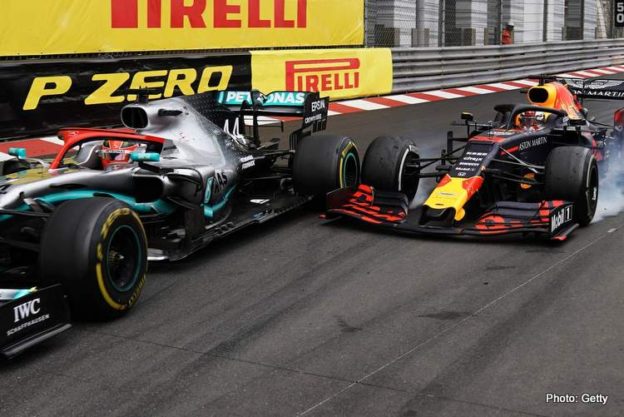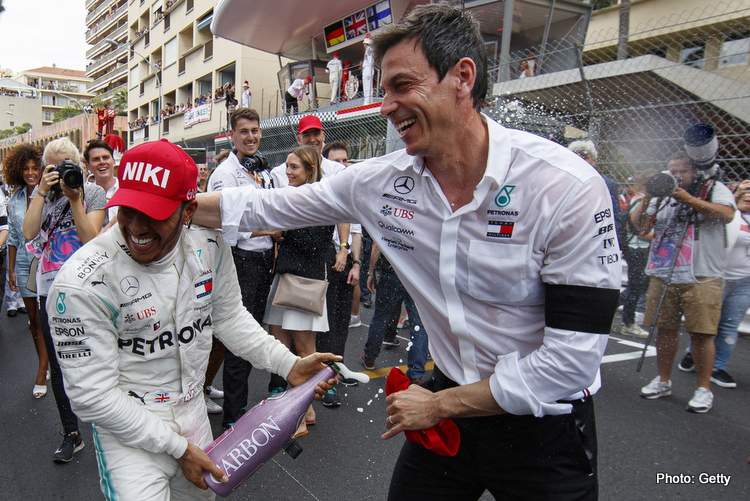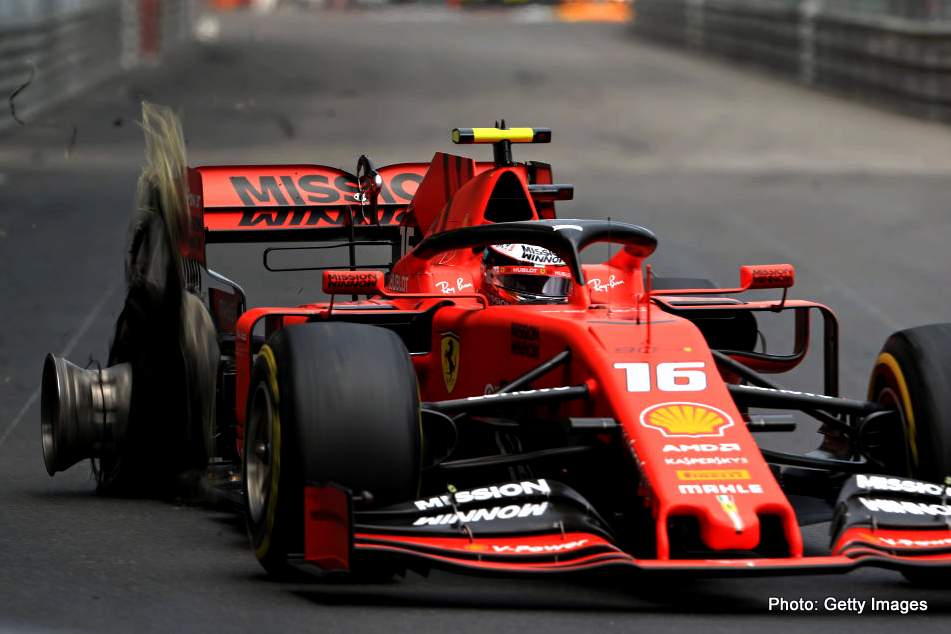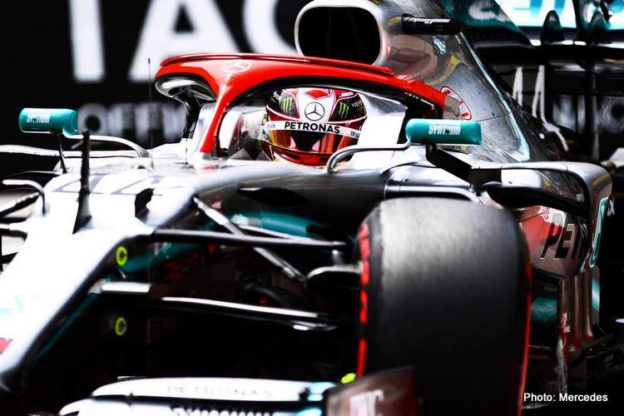Hamilton continues mastery at Silverstone with lucky win, hard-luck Bottas P2 after missing out during Safety Car; Leclerc salvages P3 for Ferrari as Vettel collides with Verstappen
In a barnburner of a British Grand Prix on Sunday Mercedes ace Lewis Hamilton took advantage of a mid-race Safety Car period to duck into the pits for his one and only tire change and gain an advantage on the race leader and his teammate, Valtteri Bottas. Worse still for Bottas, he had already stopped for a like-for-like tire switch for another set of Medium Pirellis, meaning the Finn would definitely have to stop again for the mandatory second tire compound. So Hamilton not only got a relatively “free” pit stop under the greatly reduced Safety Car-induced speeds of his competitors but also gained the race lead via that maneuver. It was one he would never relinquish as both Mercedes pulled away from the field when the Safety Car was withdrawn at the end of Lap 23. The pole-sitting Bottas was doomed to make another stop on Lap 46 for fresh rubber during fully green flag track conditions costing him in the neighborhood of 20 seconds as Hamilton, who had shrewdly gambled on holding out for a one-stopper, raced around the course. And even though Bottas went onto the Soft Pirrelli’s Hamilton still maintained that gap of over 20 seconds and even set the fastest lap for the extra point on his won Hard tires en route to his record 6th British GP victory at Silverstone. Once again, the fact that Formula 1 does not immediately close the pits and force the drivers to bunch up together before the pits do open when a full course caution occurs like so many other top series do — IndyCar, IMSA, NASCAR — led to a driver at a fortuitous position on the track gaining a major advantage over his competitors. Bottas will feel hard done by the way his strategy failed to play out amidst the roulette-like luck of the Safety Car deployment. But Hamilton and his home fans were jubilant as the victorious Englishman grabbed a Union Flag from one of the marshals after finishing first, happily driving it around and wearing it proudly on the podium for all to see.
Safety Car shenanigans aside, the race itself was undoubtedly one of the best of the season with battles all over the field and fierce whee-to-wheel jousting. While Mercedes eventually showed their clear superiority, the battle between the Ferraris and Red Bulls was race-long and decidedly intense. Ferrari’s Chalres Leclerc and Red Bull’s Max Verstappen renewed their door-banging acquaintance of two weeks ago in Austria for lap after lap to open this race. They even took it into the pits with Verstappen muscling his way past Leclerc after both cars had been serviced on Lap 14 for a momentary advantage. But Verstappen struggled with grip on exit and Leclerc immediately passed the Dutchman back on track, maintaining his P4 position with authority. When Alfa-Romeo’s Antonio Giovinnazi beached it in a gravel trap on Lap 20 bringing out that fateful Safety Car Leclerc pitted again for Hard tires but still emerged in front of Vertsappen. But once the race went green again Verstappen was able to dispatch Leclerc and his own teammate Pierre Gasly, who was finally running a competitive race, for P4. This puts him directly behind the Ferrari of Sebastian Vettel and Verstappen set about hunting the German down. In short order Vertsappen was on the Prancing Horse’s tail and on Lap 36 he made a forceful pass for P3 streaking into Stowe. But as Verstappen decelerated for the upcoming corner, Vettel, certainly keen to retake the position, failed to slow enough and rammed into the back of the Red Bull bouncing Vertsppen’s car off the track with some force. Amazingly Vertsppenn’s mount was intact and able to continue. Vettel, however, was forced to pit for a new nose due to his miscalculation, a race-destroying own goal by the 4-time champion that saw him drop from a possible podium to a lowly P16 finish. Once again the formerly peerless Vettel committed an unforced error with dire consequences for his championship aspirations.
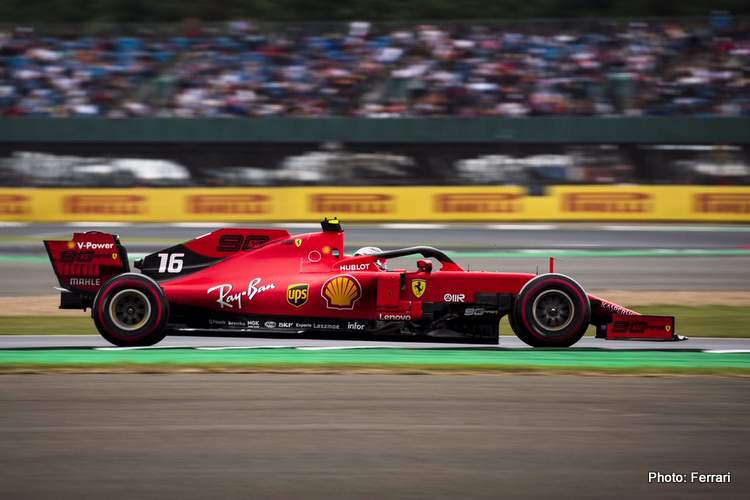
Pics courtesy GrandPrix247.com
Leclerc was able to take advantage of the Verstappen-Vettel melee and zip on by both cars to inherit the P3 position that the Monegasque would never relinquish. It was Leclrec’s fourth consecutive podium finish and the young driver is surely looking like the future at Ferrari. Gasly also took advantage of his teammate’s misfortune to seize P4, the young Frenchman’s best finish of the season. The stricken car of Verstappen was badly wounded but still managed to drive home P5. If Red Bull can stay this close to Ferrari on performance for the remainder of the year there should be plenty more great battles to come between these four closely matched drivers.
Further back in the top 10 McLaren’s Carlos Sainz stayed out fo trouble and patiently worked his way up to a solid P6 finish. The two Renaults of Daniel Ricciardo and Nico Huilkneberg both finished in the points in P7 and P10 respectively. And the veteran Kimi Raikkonen showed his savvy and skill at Silverstone by willing his overmatched Alfa Romeo up to P8, while Toro Rosso’s Daniil Kvyat also did well to come home P9.
Top 10 finishers of the British GP:
| POS | DRIVER | TIME/RETIRED | PTS |
|---|---|---|---|
| 1 | 1:21:08.452 | 26 | |
| 2 | +24.928s | 18 | |
| 3 | +30.117s | 15 | |
| 4 | +34.692s | 12 | |
| 5 | +39.458s | 10 | |
| 6 | +53.639s | 8 | |
| 7 | +54.401s | 6 | |
| 8 | +65.540s | 4 | |
| 9 | +66.720s | 2 | |
| 10 | +72.733s | 1 |
Complete race results available via Formula1.com.
The next race is in two weeks time — the German Grand Prix at the Hockenheimring. Hopefully the action at the British Grand Prix is a harbinger of good things to come as the battle between Ferrari and Red Bull heats up even more. And of course Bottas will be looking for retribution against his championship leading teammate Hamilton. Hope to see you then to see how it all shakes out!
